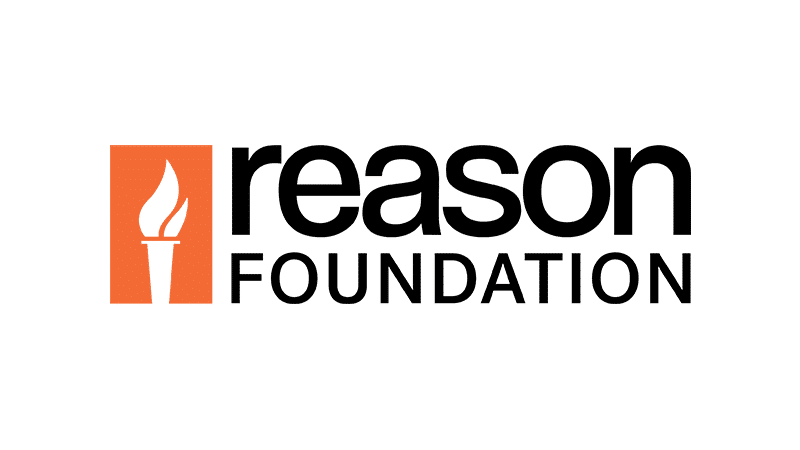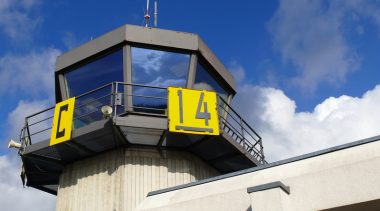Robert Poole is director of transportation policy and Searle Freedom Trust Transportation Fellow at Reason Foundation.
Poole, an MIT-trained engineer, has advised multiple presidential administrations and transportation departments on infrastructure issues.
Surface Transportation
In the field of surface transportation, Poole has advised the Federal Highway Administration, the Federal Transit Administration, the White House Office of Policy Development, National Economic Council, Government Accountability Office, and state Departments of Transportation in numerous states.
Poole's 1988 policy paper proposing privately financed toll lanes to relieve congestion directly inspired California's landmark private tollway law (AB 680), which authorized four pilot toll projects including the successful 91 Express Lanes in Orange County. More than 20 other states and the federal government have since enacted similar public-private partnership legislation. In 1993, Poole oversaw a study that coined the term HOT (high-occupancy toll) Lanes, a term which has become widely accepted since.
California Gov. Pete Wilson appointed Poole to the California's Commission on Transportation Investment and he also served on the Caltrans Privatization Advisory Steering Committee, where he helped oversee the implementation of AB 680.
From 2003 to 2005, he was a member of the Transportation Research Board's special committee on the long-term viability of the fuel tax for highway finance. In 2008 he served as a member of the Texas Study Committee on Private Participation in Toll Roads, appointed by Gov. Rick Perry. In 2009, he was a member of an Expert Review Panel for Washington State DOT, advising on a $1.5 billion toll mega-project. In 2010, he was a member of the transportation transition team for Florida's Governor-elect Rick Scott. He is a member of two TRB standing committees: Congestion Pricing and Managed Lanes.
Aviation
Poole is a member of the Government Accountability Office's National Aviation Studies Advisory Panel and he has testified before the House and Senate's aviation subcommittees on numerous occasions. Following the terrorist attacks of Sept. 11, 2001, Poole consulted the White House Domestic Policy Council and the leadership of the House Transportation & Infrastructure Committee.
He has also advised the Federal Aviation Administration, Office of the Secretary of Transportation, White House Office of Policy Development, National Performance Review, National Economic Council, and the National Civil Aviation Review Commission on aviation issues. Poole is a member of the Critical Infrastructure Council of the Los Angeles Economic Development Corporation and of the Air Traffic Control Association.
Poole was among the first to propose the commercialization of the U.S. air traffic control system, and his work in this field has helped shape proposals for a U.S. air traffic control corporation. A version of his corporation concept was implemented in Canada in 1996 and was more recently endorsed by several former top FAA administrators.
Poole's studies also launched a national debate on airport privatization in the United States. He advised both the FAA and local officials during the 1989-90 controversy over the proposed privatization of Albany (NY) Airport. His policy research on this issue helped inspire Congress' 1996 enactment of the Airport Privatization Pilot Program and the privatization of Indianapolis' airport management under Mayor Steve Goldsmith.
General Background
Robert Poole co-founded the Reason Foundation with Manny Klausner and Tibor Machan in 1978, and served as its president and CEO until the end of 2000.
He was a member of the Bush-Cheney transition team in 2000. Over the years, he has advised multiple presidential administrations on transportation policy.
Poole is credited as the first person to use the term "privatization" to refer to the contracting out of public services and is the author of the first-ever book on privatization, Cutting Back City Hall, published by Universe Books in 1980. He is also editor of the books Instead of Regulation: Alternatives to Federal Regulatory Agencies (Lexington Books, 1981), Defending a Free Society (Lexington Books, 1984), and Unnatural Monopolies (Lexington Books, 1985). He also co-edited the book Free Minds & Free Markets: 25 Years of Reason (Pacific Research Institute, 1993).
Poole has written hundreds of articles, papers, and policy studies on privatization and transportation issues. His popular writings have appeared in national newspapers, including The New York Times, The Wall Street Journal, USA Today, Forbes, and numerous other publications. He has also been a guest on network television programs such as Good Morning America, NBC's Nightly News, ABC's World News Tonight, and the CBS Evening News. Poole writes a monthly column on transportation issues for Public Works Financing.
Poole earned his B.S. and M.S. in mechanical engineering at the Massachusetts Institute of Technology (MIT) and did graduate work in operations research at New York University.
-
Examining the Claims About America’s Crumbling Infrastructure
Not every infrastructure project is equally important and a focus on highway congestion in major cities should be prioritized.
-
Air Traffic Control Debate Should Focus on Facts, Not False Terms
Critics of changes to the FAA organization try to label what is being proposed as “privatization” of the air traffic system, knowing it'll bring opposition from public employee unions and many Democrats.
-
Trump and Congress Can Jumpstart Improvements to Interstate Highways in Southern California
Numerous regulations and provisions serve as major obstacles preventing the improvement of highways and other infrastructure.
-
Removing Barriers to Public-Private Partnership Infrastructure Projects
Federal rules and regulations and that prevent investment in infrastructure projects.
-
Paving the Way for P3 Infrastructure
There are two important opportunities that the P3 community should pursue with the new Congress and the new leadership at the U.S. DOT.
-
The Good and Bad of Trump’s Trillion-Dollar Infrastructure Plan
The focus of the plan is to rebuild aging infrastructure, and to do so without a major federal tax increase.
-
Will the Trump Era Bring New Infrastructure Investment?
If Congress can be persuaded to create an infrastructure bank that operates in the fiscally conservative, taxpayer-friendly way that TIFIA is now run, that change might be acceptable to a bipartisan majority.
-
Public-Private Partnerships Have a Good and Under-Appreciated Infrastructure Track Record
How to increase infrastructure investment and produce better-justified projects that add real value to our economy.
-
A New Way to Jump-Start US Infrastructure Investment
Asset recycling and pension fund investment could play a key role.
-
Pension Fund Investment in P3 Infrastructure
Investment in P3 infrastructure continues to be a major global trend, and public pension funds are emerging as key players.
-
The Evolution of Managed Lanes
Revenue-based financing and effective traffic management are two factors that account for dramatic changes in managed lanes philosophy.
-
How to Quickly Improve the Airport Security Screening Mess
One of TSA’s primary excuses for the long wait times is that it has far fewer airport security screeners than it used to.
-
It’s Time for Dedicated Truck Lanes
“We need to figure out as a country, as an industry, and as a Congress a better way to fund our infrastructure—highway infrastructure—going forward.”
-
What the U.S. Can Learn From Australia’s Asset Recycling
Asset recycling can help modernize existing infrastructure, while also giving governments the capital to support a whole new generation of infrastructure.



